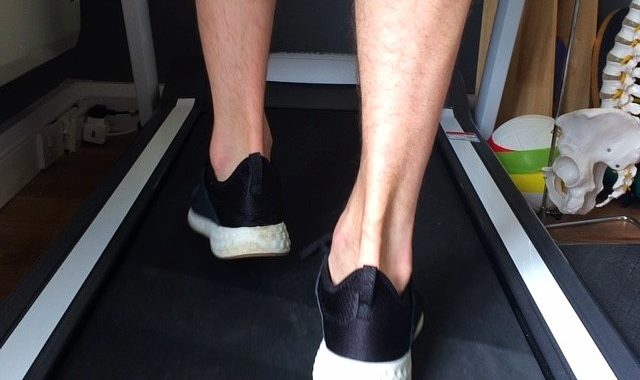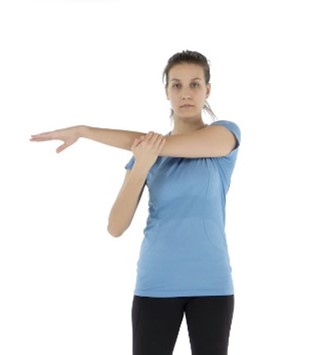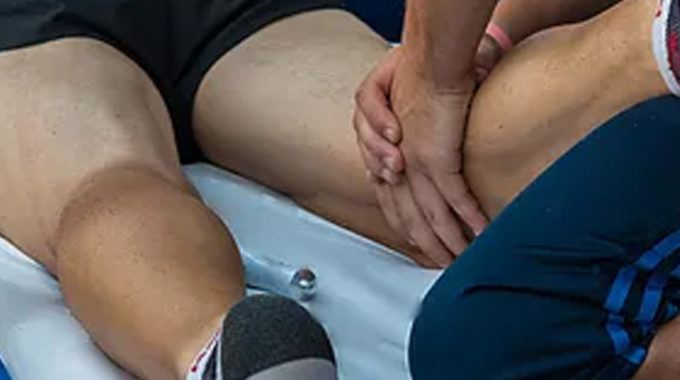When working at a desk or a sedentary job, back, neck and shoulder pain can…

The Achilles’ heel of Runners! – Achilles Tendinopathy.
Achilles tendon pain can be a problem for professional and recreational athletes, as well as non-athletes and can severely hinder activities of daily life.
Terminology!
The most commonly used term to describe tendon pain was (and seemingly is still) ‘tendonitis’ which refers to the inflammation of a tendon. The other term that is less commonly but seemingly more appropriately used is ‘tendinosis’ which refers to a non-inflammatory, degeneration of a tendon resulting from poor healing of a tendon after injury. Tendinopathy is a more global term to encompass both of these.
Frankly, what word people use to describe tendon pain/damage is not particularly important! However what we do and how/when we do it is important, as progressing too quickly or too slowly with tendon rehab will have an impact on recovery time.
Why do we get Tendon pain?
More than 30% of all sports injuries involve our tendons, and this can be due to several factors depending on the sport/activity in question. When looking at the Achilles (amongst others) the following factors are particularly important:
-
Overuse- This is a BIGGY – A lot of the cases I see are mostly due to this! We will always ask about training, or increase in activity before the injury and in a large number of cases there will be some change (e.g. I started training for a marathon 3 weeks ago in old shoes having not run for a year. I thought I could go back at the same volume as before?…….) – Although you may feel fit enough, your muscles and tendons will not be prepared and you run the risk of getting a tendinopathy (or muscle injury).
-
Muscle weakness- weakness in the calf and reduced ability of the tendon to absorb tensile load can affect the likelihood of getting a tendon injury. Gluteal muscle weakness is another commonly seen issue when dealing with the Achilles tendon due to its effect on lower limb positioning, leading to mechanical issues when walking/running.
-
Muscle imbalance- altered muscular tension can also be a factor in tendon injury. Calf muscles for example- If tight this will affect the way you walk/run and reduce the duration of heel contact during the gait cycle. If you have a tight calf and your heel lifts up before you have achieved a full stride this will load the tendon more, potentially leading to overuse, so make sure to keep up with your strength and conditioning (including the dreaded S-word “STRETCHING”).
-
Malalignment – Gait analysis can reveal a host of interesting and potentially injurious positional/biomechanical abnormalities. These factors can (but not always) predispose you to getting aches and pains, of which Achilles tendinopathy is one.
-
Reduced tensile strength of the tendon itself with aging.
-
Obesity- Excess loading on the tendon! In essence this is a form of oveuse.
How do we address tendon pain?
The first line of treatment for any tendon injury (unless you have fully ruptured the tendon) will be conservative in nature, with surgery being extremely rare and only considered in chronic cases where a plethora of other treatments have been unsuccessful.
The first and most important thing to address when treating a tendon injury are the factors we discussed earlier, i.e. the factors that can lead to the onset of pain in the first place. If we don’t address the underlying cause, the symptoms ill not subside.
One of the most important ones is Overuse- In order to improve the tendon you first need to change the amount of load you put through the limb as not to continue to irritate the tendon. Most of the time this does not mean complete rest unless the tendon is extremely irritable and in the early stages of injury. At this stage, relative rest may be of use as not to increase local swelling/pain.
Treating a tendon injury is a difficult tightrope walk as over-loading the tendon will make it worse but yet again under-loading the tendon will not make it any better.
Most of the current research and information from clinical practice points us towards a gradual increase in ‘eccentric’ loading. Eccentric loading is the slow, controlled, lengthening movement of the tendon (i.e. the movement from tip toes to foot flat). It has been shown that if the tendon is gradually exposed to this kind of slow loading force it will start to adapt therefore increasing the tendons capacity to bear load overtime. Again, if over stressed you will see a decline in the condition of the tendon so this needs to be done in a controlled way!
Other factors to consider
We also need to look back at what other issues may have contributed to the symptom onset such as; muscle imbalance, muscle weakness, a person’s gait (walking or running pattern) as well as that persons weight and level of activity. Age is also relevant and should be taken into consideration when managing a tendon injury.
A Strength and conditioning programme is often advised for increasing strength and mobility in muscles that help or hinder the lower limb during motion (e.g. gluteals, hamstrings, calf muscles, hip flexors etc).
This is where your Physio can help, to identify which areas are at fault, and what can be done to improve the state of the tendon.
This can include:
-
Muscle loosening- Massage techniques.
-
Joint mobilisation- Getting relevant joints to move better to allow for more fluidity in movement.
-
Muscle stretch and strengthen- Specific exercises to target areas of weakness and areas of immobility to improve mus
cular balance. This programme will be progressive and will eventually aim to put higher loads through the tendon if required. This may include more dymnamic movements (otherwise known as Plyometrics)
-
Orthotics- These may be required for a period of time to help to offload tension from the Achilles tendon, allowing it to repair- this depends on individual mechanics and will not be the case for everyone.
As you have hopefully seen from this article, Achilles tendinopathy can be a complex issue to manage, however with the correct management you should start to see a good change in the tendon.
If you have any further questions on tendon pain (achilles or other) please do get in touch and we can help you.
call us on: 01799530650/07399499959
or email: reformphysio@outlook.com




